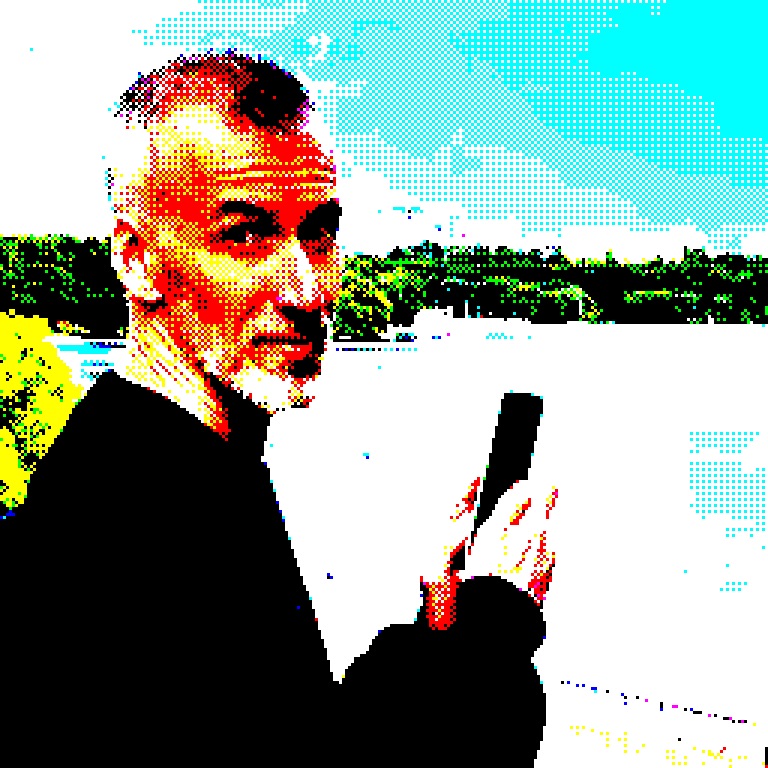This is a first instalment in a monthly round-up where I record stuff that got me thinking in some way: articles, websites, videos, podcasts. At the end of the year I plan to look back and recall pieces that had influence on me this year.
Something for everyone, everything for someone by Matthew Hall
Designing a game starting with a specific person: imagining the game that they’ll absolutely love and working from there. Could also be a fun game design exercise to do in spare time.
Building simple websites without a vendor lock-in
Didn’t know that Framer/Webflow support importing designs as code from Figma. No-code CMS have built-in design tools. I think it’s important to start with Figma in case you’d want to switch providers later and not keep all eggs in one basket. I bet this workflow becomes standard and supported by a variety of services: design/build in your vector tool of choice, deploy anywhere with 1 click.
Building Game Prototypes with LÖVE by Andrew Healey
Balatro and ARCO were built using LOVE. I like that it’s not a full-fledged IDE like Godot and Unity. I find it easier to get comfortable with new language when it’s just text and not learn a whole new way of developing software with a very complex GUI. Plus, all my game ideas are rather minimal 2D experiences, LOVE looks like a great fit for these types of games.
The Rise of the Right is the Left’s Fault — Stephen Fry on Triggernometry
It comes as a shock to many, but sending nasty tweets can be a criminal offence in the United Kingdom. Those found guilty can face fines, community service, and even time in jail. Here’s why Twitter users in the UK can still be jailed for sending ‘grossly offensive’ tweets:
Practice straight from an authoritarian government playbook.
Casual Viewing: Why Netflix looks like that by n+1
Early on Netflix correctly identified two inconveniences people had with TV and fixed them: people wanted to watch their favourite movies in the most convenient way possible and didn’t want to wait a full week for the new episode of the show to drop. Now Netflix has gone full circle and resembles TV channels it replaced.
When Tech Gets Too Big To Fail by John Battelle
It’s not that Tech has overtaken Finance. It’s that Tech has… become Finance. It’s become the most rapacious, amoral, win-at-all costs industry in the world.
Many tech enthusiasts of the early web have become the prophets.
The World According to Marc Andreessen by Wired
This actually ends up playing into Andreessen’s ideas around Little Tech, which I think we’re going to talk about, because at the time, he really was the Little Tech. He has said that if Apple or Microsoft had developed the browser first, we would probably be even more entrenched in what we think of as Big Tech today, because they were Big Tech at the time and what he was trying to do was Little Tech.
But not all them. Marc Andreessen wrote an entire Techno-Optimist Manifesto, got disappointed in the left and endorsed Trump. The quote above is super curious. Never thought about importance of Mosaic in that regard.
The Pathetic Billionaires’ Club by Paul Krugman
Why is this self-owning by billionaires so extraordinary? Well, ask yourself: What’s the point of being rich?
…
Indeed, one definition of true wealth is having “fuck you money” — enough money to walk away from unpleasant situations or distasteful individuals without suffering a big decline in your living standards.
…
The problem for them is that their status as the richest of the rich is, in ego terms, all they have left, which leaves them far more vulnerable than they would be if they were just run-of-the-mill billionaires.
Similar lines can be found in the Wired podcast about Marc Andreessen mentioned above: aligning with Trump is not only about backing politics that are better aligned with their personal financial gains, but an urge to get back the lost respect and status of people who change the world for the better that was associated with Silicon Valley in the early 2010s.
The Origins of wokeness by Paul Graham
When your market was determined by geography, you had to be neutral. But publishing online enabled — in fact probably forced — newspapers to switch to serving markets defined by ideology instead of geography.
This is a very long and complex piece written in an absolutely different societal context than the one I live in. I find it interesting for a lot of curious references and history bits, although, not agreeing in general.
